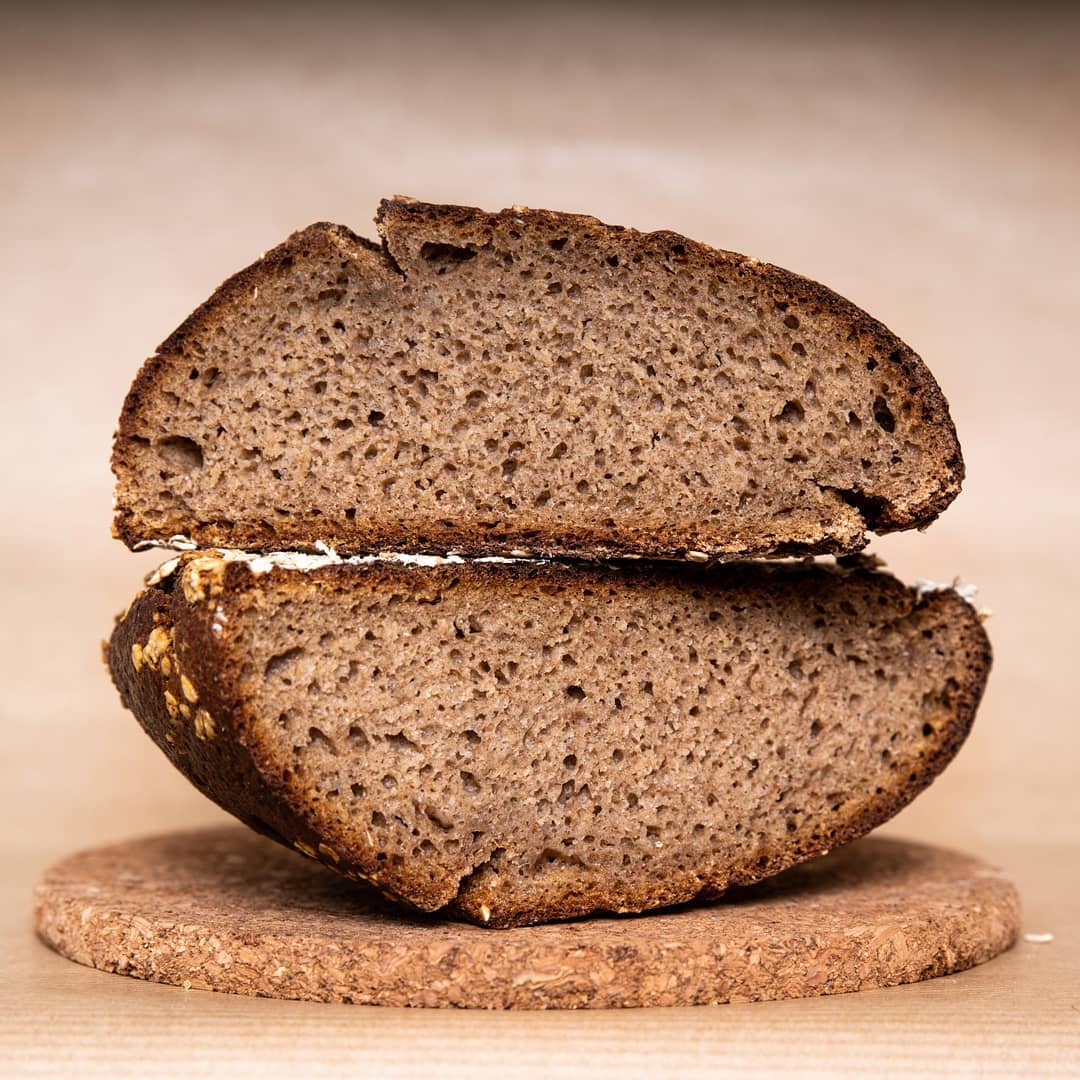I have a cookbook called The New Hebridean Kitchen that has some lovely stuff in it, and near the back is a recipe for a loaf of bread with butter, beer, and dulse in it. The taste is lovely, but with all those extras giving the yeast a hard time and it being a partly-wholemeal dough I’ve never managed to get a good rise, so the texture has always let it down. I’ve been experimenting with different adjustments to the recipe (alcohol-free beer, overnight ferments, extra time to rise, a pinch of sugar in the dough, baking temperatures) and have finally gotten it to work. It’s delicious!
Soo… would you share how it’s done?
Certainly! I’ll give the original recipe first, maybe it’ll work better for someone else or someone more experienced can identify something I missed
Ingredients
- 600g strong white flour
- 200g wholemeal flour
- 200g malted flour
- 40g finely-chopped dulse (a type of seaweed, other seaweeds can be substituted here)
- 500ml Colonsay ale (the Colonsay brewery has gone out of business now, but you’re looking for a British-style brown ale that is only lightly-hopped)
- 100ml water
- 20g instant yeast
- 20g salt
- 60g butter
Method
- Mix everything and knead until no longer sticky
- Cover and leave to proof until doubled in size
- Knock back and shape into two loaves
- Cover and leave to double again (described as “at least one hour”)
- Dust with flour
- Bake at 200 C for 45 minutes with steam
But, of course, I found that following this as written didn’t work for me. Maybe it’s a me problem at some point. Changes I made for this loaf were:
Ingredients
- Reduce white flour to 400g
- Replace ale with non-alcoholic ale
- Reduce salt to 15g to account for reduced flour
Method
- Mix to combine and only knead until homogenous
- Replace first proof with 12 hour cold ferment
- Second proof took over two hours for me
- Remove steam source when baking
As someone who has little bread making knowledge, would using a brewing yeast and an alcoholic beer help with the original recipe? Flour content can be modified of course but I’m wondering if a different yeast would perform differently as well.
Alcohol is a waste product that some yeasts produce while eating sugar rather than being something that the yeast feeds on, so I wouldn’t expect it to improve the results here over using a non-alcoholic beer. Normally, fermentation stops when either the yeast is out of sugar to eat or it has produced so much alcohol that the alcohol kills the yeast. Brewing yeasts are of course quite tolerant of alcohol and would probably handle a regular beer in the dough better than other yeasts though
Trying a brewer’s yeast to bake bread is an interesting idea though. No idea if it would do anything different. I just ordered some brewing yeast yesterday, so I will set a little aside and make two batches of bread to compare when it arrives
Nice! I’d be interested to know if it makes a marked difference.
Me, I’ve made no knead bread, biscuits, and pizza dough, but have consistently failed at keeping sourdough alive or useful. Just knowledge of the basics really.


